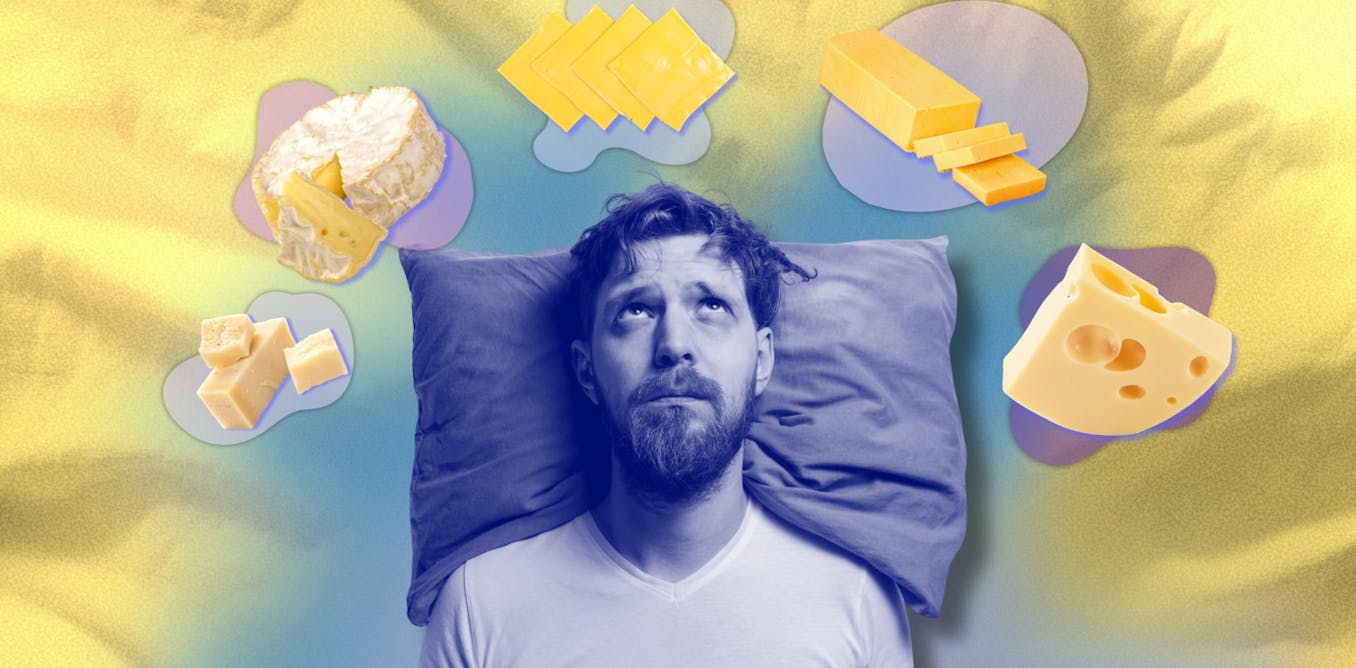
Cheese Before Bed and Nightmares: Unpacking the Dairy-Dream Connection
The age-old belief that eating cheese before bed leads to vivid dreams or nightmares has recently been reignited by a new study. While the connection isn’t straightforward, the research suggests a link between lactose intolerance, disrupted sleep, and negative dream recall.
The Cheese-Nightmare Connection: Fact or Folklore?
A recent study involving over 1,000 university students explored the perceived link between food consumption and dream quality. While only 5.5% of respondents believed their diet directly influenced the nature of their dreams, a significant portion (25%) reported certain foods negatively impacted their sleep. Many associated dairy products, particularly cheese, with more disturbing dreams and poorer sleep quality. Conversely, fruits, vegetables, and herbal teas were linked to improved sleep.
This study relied on self-reported data, a limitation that could introduce recall bias and potentially inflate the perceived connection between cheese and nightmares. Participants’ prior awareness of the cheese-nightmare myth, especially within a psychology student population, could have influenced their responses, creating a self-fulfilling prophecy.
Despite these limitations, the study highlights a perceived connection between diet and dream quality for a subset of individuals.
The Science Behind the Potential Link: Digestion and Sleep Quality
The human body is designed for diurnal rhythms—awake during the day and asleep at night. Consuming a large meal, particularly one high in fat and protein like cheese, close to bedtime disrupts this natural rhythm. Our digestive system is less efficient at night, slowing the processing of food. This can lead to indigestion and discomfort, which negatively impacts sleep quality.
Research shows that eating close to bedtime reduces REM sleep, the sleep stage associated with vivid dreams. This reduction in REM sleep, combined with potential indigestion, could lead to more frequent awakenings during the night, particularly during REM cycles. Awakening during REM sleep increases the likelihood of remembering dreams, both positive and negative.
Therefore, the cheese-nightmare connection might not be about cheese directly influencing dream content, but rather about disrupted sleep increasing the chance of remembering a nightmare that might have occurred regardless of the cheese consumption.
Lactose Intolerance: A Key Factor in the Equation
The study also suggests a stronger link between lactose intolerance and negative dream recall. Individuals with lactose intolerance may experience more significant digestive distress after consuming dairy, potentially leading to more profound sleep disruption and a higher likelihood of remembering nightmares.
This finding supports the idea that the problem isn’t cheese itself, but rather the individual’s physiological response to it.
The study’s findings should not be interpreted as definitive proof that cheese causes nightmares, but rather as an indication that digestive discomfort can influence sleep and dream recall.
Practical Advice: Timing Matters
While there’s no need to completely eliminate cheese from your diet, mindful timing is key. General sleep hygiene guidelines suggest avoiding large meals at least two hours before bedtime. This allows ample time for digestion, minimizing the likelihood of indigestion interfering with sleep.
If you enjoy cheese, consume it earlier in the evening. Small portions later in the evening might be acceptable, but larger quantities should be avoided close to bedtime.
Individuals with lactose intolerance should be particularly cautious about dairy consumption before bed, given the potential for more severe digestive upset.
Key Takeaways
- A study suggests a perceived link between dairy consumption, particularly cheese, and negative dream recall.
- The connection may not be direct causation, but rather a consequence of disrupted sleep due to late-night eating.
- Lactose intolerance may exacerbate this effect, leading to greater sleep disturbance and dream recall.
- Mindful timing of meals, particularly those high in fat and protein, is crucial for optimal sleep quality.
- While not a reason to completely avoid cheese, consuming it earlier in the evening or in smaller portions before bed is advisable.
